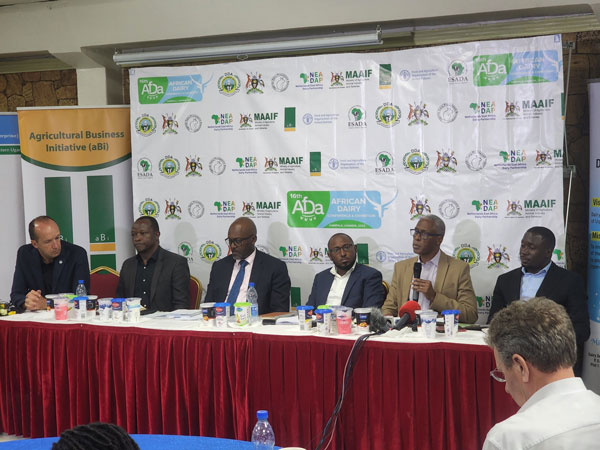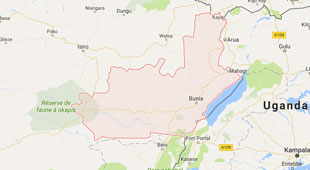
Kampala, Uganda | THE INDEPENDENT | Uganda’s first official dairy exports to Algeria will start next month, the Dairy Development Authority (DDA) has revealed.
Uganda and Algeria signed the diary deal in March this year. Uganda is expected to export milk products worth up to USD 500 million to the North African country.
At the opening of the 16th African Dairy Conference in Kampala, Samson Akankiza, the DDA Executive director, stated that the supply, which is currently only for powdered milk, had to go through Algeria’s procurement procedures, which is now complete.
“Since on one side, it is the government buying, and on this side, it is the private companies selling, there was a need to go through the country’s procurement procedures, which all three of our major suppliers have completed,” he said.
According to Akankiza, there are three powder milk producers in Uganda including Amos Diaries, Brookside Diaries, and Pearl Diaries. He added that the first consignment contains 120,000 metric tons, which is part of the 1.4 billion liters for the quota’s supply as per the agreement.
Uganda currently produces 4 billion liters of milk annually, and the numbers are poised to increase. However, the sector has suffered setbacks due to a lack of a reliable market both domestically and outside the country’s borders. Uganda’s domestic milk consumption stands at 64 liters per capita annually, which is very low compared to the UN-recommended 200 per capita.
The 16th African Dairy Conference and Exhibition, which kicked off in Kampala, is set to highlight opportunities for dairy investment in Africa, with a focus on the host country. It also intends to strategize on the promotion of domestic milk consumption.
Peter Ngaruiya, the Executive Director of the Eastern and Southern African Dairy Association (ESADA) says that though optimal intraregional trade is still a challenge, the association has achieved in ensuring improved quality of dairy products in the region.
Ngaruiya mentions that the protectionist tendencies of most of the governments in the region, as a technical barrier to trade, are a major issue. He adds that the conference aims to handle such issues by engaging regional regulatory bodies to resolve the pending issues once and for all.
Uganda, without a doubt, is a force to reckon with when it comes to dairy, says Ngaruiya, stressing that the country has an advantage of low cost of production compared to its regional competitors. He adds that this factor, combined with technological improvement interventions, makes Uganda’s dairy sector profitable.
However, he is concerned with the low domestic consumption rates, which hinder profitability. Khadija Nakakande, the National Agricultural Advisory Services (NAADS) spokesperson, says the increasing milk production in the country is set to continue as the government increases support to the sector.
She urges Ugandans to embrace milk consumption as a way of supporting fellow Ugandans. “The government has so far injected over 70 billion shillings in the dairy sector through milk coolers, to improve storage, crossbreed animals for improved production, tractors to farm animal feeds. She adds that they have also supported the establishment of five value additional factories and two more are on the way, and this will total them to seven,” she said.
****
URN
 The Independent Uganda: You get the Truth we Pay the Price
The Independent Uganda: You get the Truth we Pay the Price



